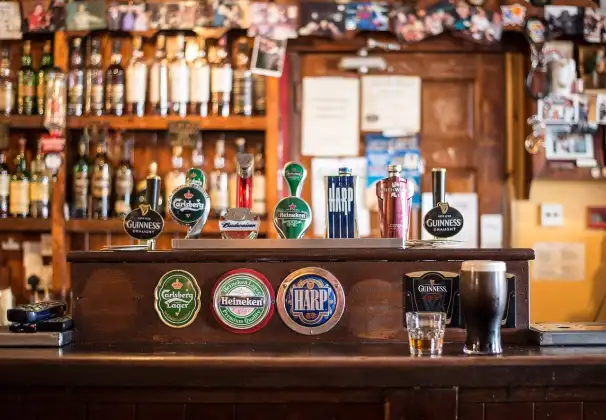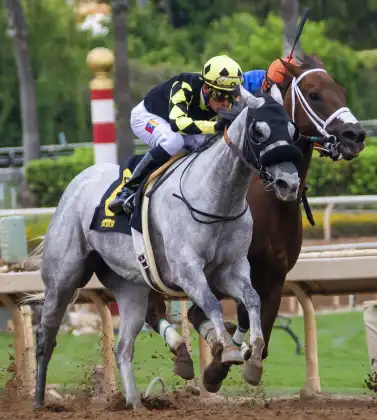Gambling in Ireland: History and Future

In addition to its Irish whiskey, Guinness beer, Irish folk music, Ireland is also renowned for its energetic gambling scene. Horse racing and greyhound racing are very popular in Ireland. Common types of gambling include betting, lotteries, raffles, gaming and slot machines.

Ireland has a long-standing gambling tradition which is integrated in country’s culture. Games like horse racing, greyhound racing, and card games have been popular for centuries. Horse racing has over 350 race meetings annually across 26 racecourses. Whereas, Greyhound racing has over 15,000 races held annually across 14 tracks. Horse racing contributes approximately €1.8 billion, whereas, Greyhound racing industry generates an estimated €130 million annually to the economy of Ireland.
From traditional land-based casinos to the rise of online gambling, Ireland offers a broad range of options to cater both casual players and seasoned gamblers.
Ireland’s Gambling History
Gambling has been an integral part of Irish people for centuries. Horse racing and greyhound racing are the most popular form of gambling in Ireland. Curragh Racecourse is one of the world’s oldest racecourses. The first recorded race on the this plain took place almost 300 years ago in 1727. The first Group 1 flat horse race i.e. Derby was held in 1866. Two years later in 1868 the Curragh was officially declared a horse racing and training facility by the act of parliament.
The first-ever greyhound race in Ireland took place at Shelbourne Park, Dublin in May 1927. The sport quickly gained popularity which led to the establishment of the Irish Greyhound Board IGB (aka Bord na gCon) in 1958. Now, there are 17 greyhound racing stadiums in Ireland (two in Northern Ireland).

Ireland became a global leader in greyhound breeding, producing some of the fastest dogs worldwide. Based on official race times, an Australian greyhound named Fernando Bale is considered the fastest greyhound ever. The sport reached its peak in the mid-20th century, with thousands attending races weekly. Today, while attendance has declined, greyhound racing still remains a cherished tradition, supported by breeding excellence and major events like the Irish Greyhound Derby.
The origins of gambling in Ireland trace back more than 2000 years to the era of High King Conaire Mór, who ruled from 110 BC to 60 AD. Historical accounts suggest that the Irish engaged in betting on events such as chariot races, many of which were hosted at the Curragh. This long back deep-rooted history shows that gambling has been a beloved pastime in Ireland for millennia.

In the 1980s, gambling in Ireland began to adopt a more structured and regulated approach. The Gaming and Lotteries Act of 1956 laid the foundation for legal gambling activities like casinos and sports betting.
Ireland’s Gambling Law
The licensing and regulation of gambling in Ireland is based on several legislations. Some of these laws are very old, and, they do not cover some new forms of gambling and betting. Therefore, a new Gambling Control Bill is under review currently. This aims to create the Gambling Regulatory Authority of Ireland (GRAI) to oversee online casinos, sports betting, and lotteries. GRAI is being established under the Gambling Regulation Act 2024.
However, the National Lottery does not require GRAI as it is regulated separately under the National Lottery Act 2013. In 2022, gambling participation rates in Ireland were reported at approximately 64%, highlighting the need for comprehensive regulation to protect consumers and promote fair play. The new regulatory body, GRAI is expected to enhance transparency and accountability in a market that generated an estimated €8 billion in revenue annually.
Online Gambling Status in Ireland
Today, online gambling is one of the fastest-growing sectors in Ireland, with revenue at approximately €4 billion in 2023. More players are now opting for the flexibility of online gaming over traditional brick and mortar casinos, as online gambling allows them to play from the comfort of their homes and enjoy 24/7 access to their favourite games.

Online gambling is fully legal in Ireland. It is governed by the Betting (Amendment) Act 2015, which requires casino operators to hold a valid license from the Revenue Commissioners. This legal framework ensures that players engage with secure and regulated casino platforms. The growing demand for online casinos has resulted in an influx of casino operators entering in Ireland. These platforms often provide games in traditional language Gaelic, support local payment methods, and online promotions best suited to Irish players.
However, it is important to choose the right platform for players looking to explore the Irish online casinos. With so many options available, it can be sometimes difficult to determine which casinos are secure, legitimate, and trustworthy. This is where a good casino review guide comes in handy. The best Irish online casino guide helps players navigate the huge list of casinos by providing in-depth reviews of different platforms and highlighting their pros and cons. It highlights key factors like licensing, payment methods, game variety, and customer support. It ensures players choose platforms that prioritize safety, fairness, and a superior gaming experience.
Final Thoughts
Irish players enjoy a wide range of casino games, both online and at land-based venues. Some of these casino games include slot machines, blackjack, roulette, poker, and bingo. These games take care of interest of different player preferences. These games offer everything from strategic gameplay (or game of skill) to fast-paced entertainment like game of luck.
Whether it's the excitement of horse racing or the convenience of online casinos, Ireland offers a wide range of opportunities for players to enjoy gambling responsibly. Ireland continues to maintain a secure and enjoyable gambling environment for all with focus on regulation, consumer protection, and responsible gaming,
Football Predictions For Brentford Vs Arsenal From Our Experts
Date: Wednesday, 01 January 2025 || Time: 19:30
| Outcome | Expert Name | Result |
|---|---|---|
| (2:0) 1H | Omo Akin | 1 - 3 |
| Under 4.5 | Riderson | 1 - 3 |
| Over 0.5 | gomez | 1 - 3 |
| Over 0.5 | Riderson | 1 - 3 |
| Over 0.5 | Bahubali | 1 - 3 |
| Over 0.5 | Constantly | 1 - 3 |
| Over 0.5 | gomez | 1 - 3 |











